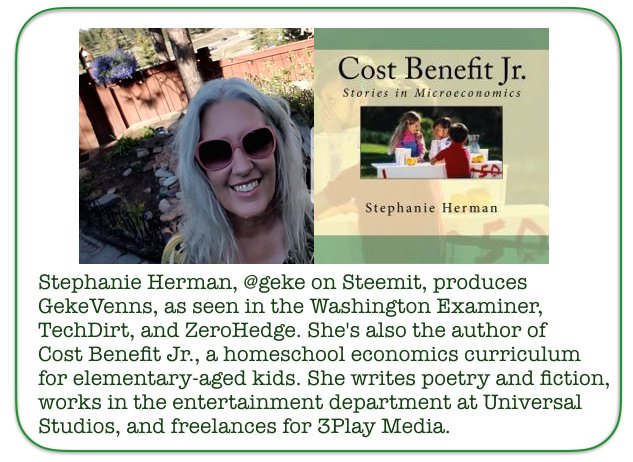

When I was researching data on Northrop Grumman lobbyists prior to publishing its venn, I failed to come across any information about Jeanine Esperne. And since the venn is intended to show how big business can influence government, I should have. Esperne is the head of Northrop Grumman's Information Systems division in Washington. Prior to her job at NG, she was the Pentagon's legislative affairs rep to the House. (Often on GekeVenns you'll see job titles involving Gov't Relations or Legislative Affairs, which are more respectable ways to describe lobbying.)
So why did Esperne escape my reach?
It's because she's not a registered lobbyist. Generally the GekeVenns are produced using data from OpenSecrets.org, which only includes registered lobbyists in their revolving door database. Esperne is a more accurately described as a member of the government's shadow lobbying contingent.
Shadow lobbying involves any government advocacy or influence that navigates above, below, or around the legal thresholds that would require public disclosure and registration.
For example, there's a legal difference between someone who is trying to influence federal government policy and someone who's marketing products to the government with no intention of obtaining purchase contracts. And not even all lobbyists have to register as one. For example, if a lobbyist makes less than $3,000 from their client, there is no registration requirement. And a lobbying organization isn't required to register if it spends less than $13,000 per quarter on lobbying. You can access all the parameters for defining lobbying here: https://lobbyingdisclosure.house.gov/amended_lda_guide.html
But there are other, even less visible ways to influence government, like a well-positioned marriage. Family members of government employees are often employed by the corporations their loved ones are involved with regulating. Or, in the case of Senator Dianne Feinstein, the connections may not involve regulatory laws at all; they may result in lucrative contracts like the one garnered by real estate firm C.B. Richard Ellis to become the exclusive real estate agent to the U.S. Postal Service. (Feinstein's husband, Richard Blum, is the chairman of C.B. Richard Ellis.)
Yet another form of influence comes via connections between specific industries and think tanks. Gin Armstrong, a research analyst at the Public Accountability Initiative, pointed out a while back that, “During the course of only one month in summer 2013, seven prominent think tanks were cited 144 times in major US publications in the context of ongoing debates about whether the US should intervene in Syria.” In addition to hiring a lobbyist to push for military action, corporations of the military-industrial complex can direct funding efforts toward defense industry think tanks that can generate support for war not only within the walls of government, but among the public, as well. And many of the think tanks involved in military debates have been able to keep their financial ties to the defense industry relatively hidden.
So what can be done about shadow lobbying? Very little. Some call for stricter laws, but others point out that the laws already on the books aren't fully enforced. Probably the best thing we can do is continue to expose what's going on, shining a brighter light on activities that take place in the shadows of Washington DC.

This is how the entire world is going.This lobbyists whether they are registered or not they are so powerful that they will show you whatever they want you to see.Specially powerful country like America they are even more powerful.To me they are working like evil force.Just think in last 15 years all the wars which took place all over the world was it needed?I dont think any one of the war was needed,but all the powerful country make it happen only because of their different kinds of interests.I hope some day the scenario will be changed.Thank's to you for sharing this post with us @geke.@upvoted and resteemed
Corruption is a thorn eating into the economies of many countries, especially developing nations, what is your view on open governance as a way of dealing with corruption?
I'm sure a lot of people weren't aware of the more subtle means of wielding influence over government you discuss here
Thanks!
Thanks for the great information on lobbying.
I appreciate it
Upvote
great to share...corruption....
thank you..
A country with high rate of corruption always suffer with economy. Proper means should be used to deal with corruption. Thank you @geke